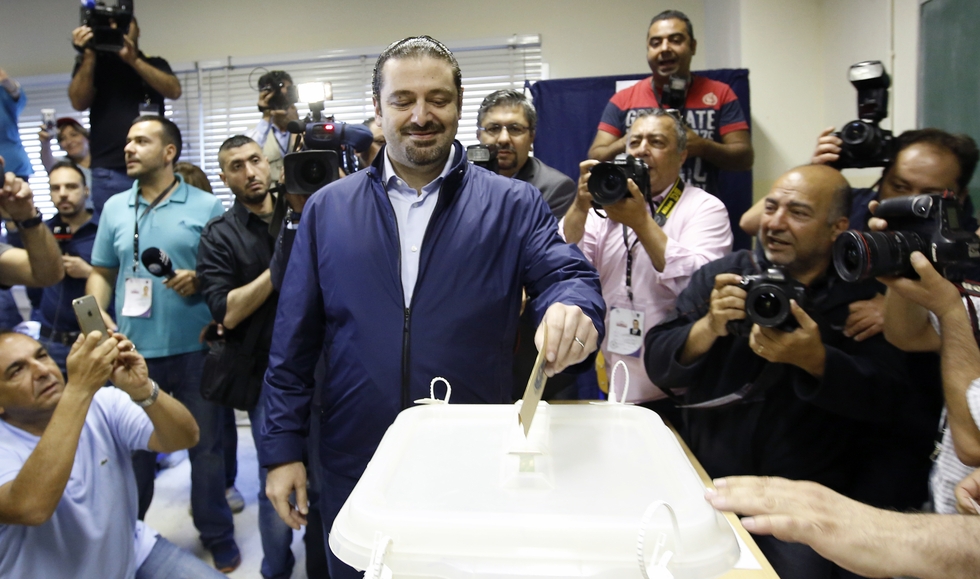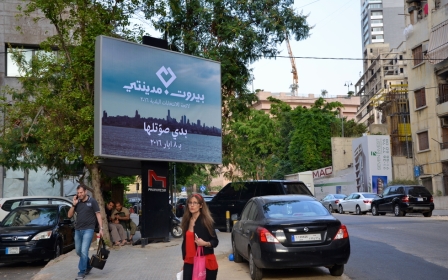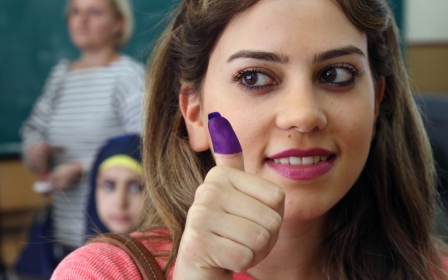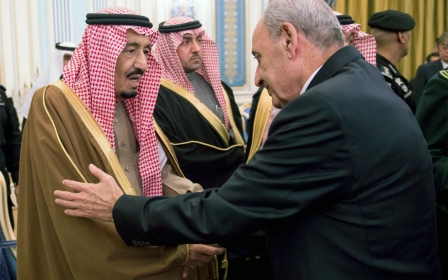Not their city: Beirut Madinati loses in Lebanon's first poll in six years

A grassroots campaign that aimed to take on Lebanon's paralysed political system appeared to be heading for failure on Monday as entrenched parties declared victory in municipal elections in Beirut.
Authorities are expected to announce later on Monday the official results for the elections held on Sunday in the capital and in two provinces in the Bekaa region.
They were the first elections in Lebanon since the last municipal polls in 2010, in a country with a deeply divided political scene that has not had a president for the past two years nor voted for a parliament since 2009.
In Beirut, hopes had been high that a new list of independents - Beirut Madinati, Arabic for "Beirut is my city" - could take on an established political class accused of incompetence and corruption.
But former prime minister Saad Hariri said in statement issued on Monday that an alliance he and other traditional politicians back in the capital - the Beiruti List - had won all 24 seats on its council.
"The head of the Beiruti List for the municipal elections, Jamal Itani... announced that, according to initial results from its electoral apparatus, the list won the battle completely in its favour," he said.
A candidate from civil society initiative Beirut Madinati said that even if the list did not win any seats, it had at least shaken up the political establishment.
'Just a beginning'
"We're not taking part in the polls to make any political gain but to give serious competition" to traditional parties, Rana Khoury told AFP.
"The mere fact that we made those in power... feel that they had been given a cold shower means that we achieved something positive," she said.
"We made them feel they don't represent or serve citizens as they should."
Beirut Madinati's programme to attract frustrated voters had included plans to improve public transport in the traffic-clogged capital, introduce more green spaces, make housing affordable and implement a lasting waste management solution.
Lebanese civil society gained momentum after angry protests last summer over an enduring political crisis that saw rubbish pile up on the streets.
But Hilal Khashan, head of the political science department at the American University in Beirut, said civil society is still weak in Lebanon.
"It comes up against the country's sectarian political system. It's disconnected from the political process," he said.
He added that Beirut Madinati - whose list included teachers and artists such as famed actress and filmmaker Nadine Labaki - was a cultural elite that had not yet managed to reach the general public.
"The civil society movement started to develop last summer but it definitely can't create political awareness in two or three months," he said.
"But what happened is just a beginning and Beirut Madinati was able to make its mark on the political map."
'Traditional lists'
Lebanon has been without a president since May 2014, when the mandate of Michel Sleiman expired, with the country's Christians, Sunni and Shiite Muslims and Druze unable to agree on a candidate.
The country's political scene is sharply divided, with the government split roughly between a bloc led by Hezbollah, backed by Tehran and Damascus, and another headed by Hariri, supported by Riyadh and Washington.
The rival blocs however banded together in the capital to support the same list against Beirut Madinati.
The results showed "members of civil society cannot blow apart a political establishment, however degenerate," said the editorial in the French-language l'Orient le Jour daily.
But "what Beirut Madinati has done... is fundamental: it has sown a grain that will greatly contribute to an unavoidable change in mentalities".
Khoury agreed: "We took part in the elections to say there are people outside (traditional) political alignments that they have the right to be represented."
Low turnout
Turnout was low in the capital on Sunday with only 20 percent of registered voters casting votes, Interior Minister Nohad Machnouk said.
But it was much higher in the Bekaa region, dominated by the Shia movement Hezbollah, at around 50 percent.
In the Bekaa, Hezbollah-backed lists won in most municipalities, initial unofficial results showed.
Hariri-backed lists won in most Sunni areas, while lists supported by Druze politician Walid Jumblatt won in Druze villages.
In the Christian-majority town of Zahleh, a list of candidates from Christian parties won all seats on the council.
Middle East Eye propose une couverture et une analyse indépendantes et incomparables du Moyen-Orient, de l’Afrique du Nord et d’autres régions du monde. Pour en savoir plus sur la reprise de ce contenu et les frais qui s’appliquent, veuillez remplir ce formulaire [en anglais]. Pour en savoir plus sur MEE, cliquez ici [en anglais].




